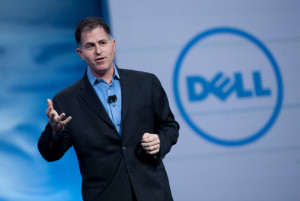 Dell customers have given a mixed reception to its recent privatisation deal, causing some to re-evaluate their future relationship with the vendor.
Dell customers have given a mixed reception to its recent privatisation deal, causing some to re-evaluate their future relationship with the vendor.
Dell became a private company in October as part of a $25 billion buyout deal, after a successful bid by founder Michael Dell and investment firm Silver Lake. CEO Michael Dell has since claimed that the privatisation will have a number of benefits for customers, enabling the company to innovate more quickly, and hastening its reinvention as an enterprise services firm as it will no longer have to answer to investors.
However customers speaking as part of a roundtable at Dell World in Texas indicated that the privatisation deal has also created uncertainty around Dell’s future direction.
Jim Liszewski, Vice President and General Manager, for image publishing firm Shutterfly, said that the announcement of the deal raised the possibility of major changes to business operations at Dell.
“It did impact our relationship with Dell, it impacted our long term planning, and I’d say we are still doing that planning. It would be remiss if we didn’t do it to protect our company and shareholders,” said Liszewski.
“There is a lot to be seen on how Dell handles the privatisation. Everything we are hearing is positive – it is heading in the right direction, but it is probably going to take at least a couple more years to see how this plays out.”
David Crain, CIO, Southern Illinois University, said that while the ability to innovate faster is welcome, there is a concern that moving more quickly towards becoming an enterprise services firm could alter Dell’s focus on its traditional mainstay of small and mid-market customers.
“The higher education community in general is cautiously optimistic about the privatisation,” he said. “We like the focus on innovation, but we are a little worried that Dell’s focus on higher education as a vertical will continue.”
He added that the “jury is still out” on whether the privatisation will prove to be a success.
Meanwhile Christian Morin, director of IT at physical security firm Genetec, highlighted the positives of privatisation, which he said would enable greater agility in developing new offerings.
“It has been a great thing, it has allowed Dell to have more focus,” said Morin. “They can focus more on the long term than the short term, so it is going to really help the company regroup and think about the customer instead of next quarter’s revenues.”
John Abbott, distinguished analyst at 451 Research said that there are a number of potential dangers from a customer perspective as Dell goes private.
“The challenges are whether they are going to make the investments in the right places or not, without shareholders being able to influence decisions: are they going to keep going with niche market areas, are they going to ditch the PC business completely? I don’t think that they will do any of those things, but they conceivably could do so, and would have found it harder as a public company,” he said.
However he added that customers are unlikely to jump ship from Dell in the short term, not least because competitors such as Hewlett Packard are also in the middle of significant periods of reinvention. The company has also taken positive steps to reassure customers during the transition, such as increasing the presence of CEO Michael Dell.
“I dont think that most customers will have a problem as long as they operate in a steady way,” said Abbott.
“The main challenge is the visibility into the company. If they remain fairly open about what they are doing then most customers won’t have a problem with it.”





